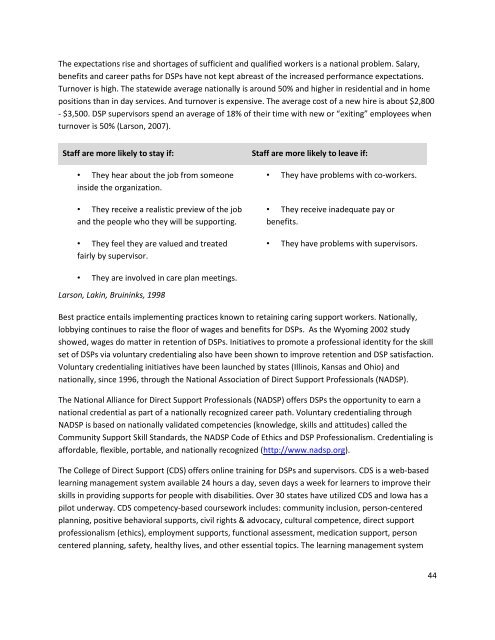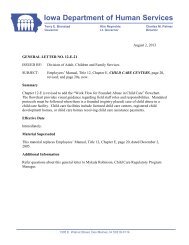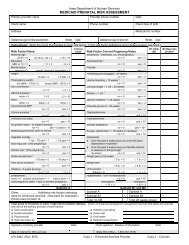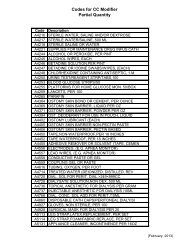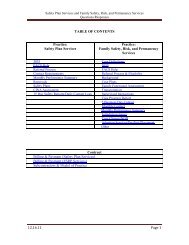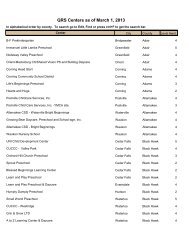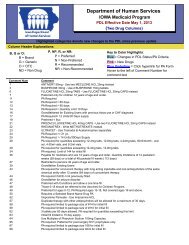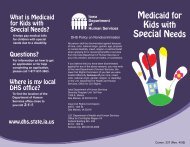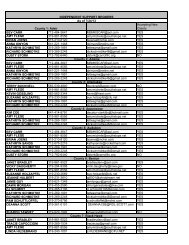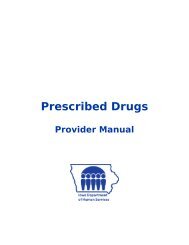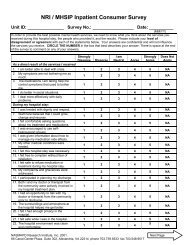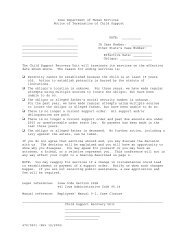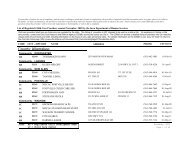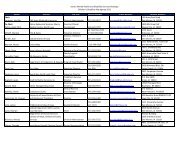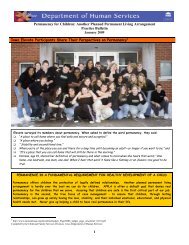Iowa Mental Health and Disability Services System Redesign Interim ...
Iowa Mental Health and Disability Services System Redesign Interim ...
Iowa Mental Health and Disability Services System Redesign Interim ...
- No tags were found...
You also want an ePaper? Increase the reach of your titles
YUMPU automatically turns print PDFs into web optimized ePapers that Google loves.
The expectations rise <strong>and</strong> shortages of sufficient <strong>and</strong> qualified workers is a national problem. Salary,<br />
benefits <strong>and</strong> career paths for DSPs have not kept abreast of the increased performance expectations.<br />
Turnover is high. The statewide average nationally is around 50% <strong>and</strong> higher in residential <strong>and</strong> in home<br />
positions than in day services. And turnover is expensive. The average cost of a new hire is about $2,800<br />
- $3,500. DSP supervisors spend an average of 18% of their time with new or “exiting” employees when<br />
turnover is 50% (Larson, 2007).<br />
Staff are more likely to stay if:<br />
• They hear about the job from someone<br />
inside the organization.<br />
• They receive a realistic preview of the job<br />
<strong>and</strong> the people who they will be supporting.<br />
• They feel they are valued <strong>and</strong> treated<br />
fairly by supervisor.<br />
Staff are more likely to leave if:<br />
• They have problems with co-workers.<br />
• They receive inadequate pay or<br />
benefits.<br />
• They have problems with supervisors.<br />
• They are involved in care plan meetings.<br />
Larson, Lakin, Bruininks, 1998<br />
Best practice entails implementing practices known to retaining caring support workers. Nationally,<br />
lobbying continues to raise the floor of wages <strong>and</strong> benefits for DSPs. As the Wyoming 2002 study<br />
showed, wages do matter in retention of DSPs. Initiatives to promote a professional identity for the skill<br />
set of DSPs via voluntary credentialing also have been shown to improve retention <strong>and</strong> DSP satisfaction.<br />
Voluntary credentialing initiatives have been launched by states (Illinois, Kansas <strong>and</strong> Ohio) <strong>and</strong><br />
nationally, since 1996, through the National Association of Direct Support Professionals (NADSP).<br />
The National Alliance for Direct Support Professionals (NADSP) offers DSPs the opportunity to earn a<br />
national credential as part of a nationally recognized career path. Voluntary credentialing through<br />
NADSP is based on nationally validated competencies (knowledge, skills <strong>and</strong> attitudes) called the<br />
Community Support Skill St<strong>and</strong>ards, the NADSP Code of Ethics <strong>and</strong> DSP Professionalism. Credentialing is<br />
affordable, flexible, portable, <strong>and</strong> nationally recognized (http://www.nadsp.org).<br />
The College of Direct Support (CDS) offers online training for DSPs <strong>and</strong> supervisors. CDS is a web-based<br />
learning management system available 24 hours a day, seven days a week for learners to improve their<br />
skills in providing supports for people with disabilities. Over 30 states have utilized CDS <strong>and</strong> <strong>Iowa</strong> has a<br />
pilot underway. CDS competency-based coursework includes: community inclusion, person-centered<br />
planning, positive behavioral supports, civil rights & advocacy, cultural competence, direct support<br />
professionalism (ethics), employment supports, functional assessment, medication support, person<br />
centered planning, safety, healthy lives, <strong>and</strong> other essential topics. The learning management system<br />
44


